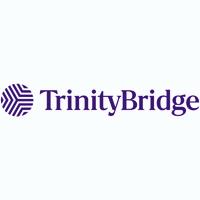10 key tips for choosing a financial wellbeing provider
In any workplace, the personal financial circumstances, needs and aspirations of each member of staff are unique. Financial considerations and concerns will differ depending on where each person is in their career lifecycle.
Employers play a key role to play in helping their people understand why financial health is important and to offer the resources to help employees achieve their financial goals.
Meaningful financial education, delivered by expert financial wellbeing providers, is shown to contribute significantly to positive employee engagement, satisfaction and retention. But for many organisations, the challenge lies in identifying and selecting the right provider to partner with.
Here are the 10 essential qualities your business should expect.
1. Proven expertise
It’s important to look for a provider that is well established and a proven track record. If you choose a provider with a broad baseline of skills, knowledge and experience, you’ll be able to serve all your employees, regardless of individual needs, financial circumstances or goals. It’s also important to consider whether they have specialist, FCA-regulated advisers who have experience with and understand day-to-day client needs and who play a key role in developing and delivering education content.
2. Bespoke programme design
Every company has a unique culture, a unique way of communicating with employees and a unique set of benefits, so the financial education provided needs to be unique, too. Off-the-peg solutions may be too generalised; the financial wellbeing programme you provide has to be tailored to the individual needs of your company.
Moreover, the law, regulations, national and global economies are all susceptible to rapid change – your financial wellbeing provider should be agile enough to adapt to these.
3. Multichannel delivery
The future is digital and continued growth in technological capability will expand the ways in which individuals will be able to access and engage with advice. However, everyone’s approach to learning is based on a complex mix of strengths and preferences.
With so many employees engaged in hybrid working, your wellbeing provider should be agile enough to cater for this, providing an integrated mix of traditional and digital resources to make its service accessible to everyone in ways they are comfortable with, whether in the office or at home.
4. Integrated communications
The provider you choose should be able to offer you communications resources that allow you to achieve successful and continuous engagement with your staff. This means giving you the information, tools and platforms to integrate financial wellbeing into your wider organisational messaging.
At the same time, they should have ways to continually engage employees with timely reminders, such as at the tax year end or to coincide with your flexible benefits window.
5. The personal touch
Many people appreciate the convenience that digital learning brings, but giving your people the opportunity to tackle their financial wellbeing needs face-to-face, or at least one-to-one, is really important too.
Finance is personal, so the guidance and relationships around it should be personal too. Self-service automated models can form part of a modern financial wellbeing offer, but that shouldn’t be to the total exclusion of a more personal approach.
6. Impartiality
Your priority as an employer will be to ensure your people have access to reliable, reputable information suitable for their individual situation. That means it must be impartial.
There are advantages to working with a financial wellbeing provider that is able to also provide your employees with easy access to the products that will help them achieve their financial goals – indeed, the lack of product guidance can be frustrating for people who find financial planning overwhelming.
However, you should satisfy yourself that the information provided is unbiased, providing employees with an accurate and rounded view of all the options available.
7. Support for every employee
As an increasing number of people have begun to openly acknowledge that their identities don’t fit in with existing conceptions of age, gender, race and ethnicity, it’s important that your financial wellbeing offer reflects this, and caters to the needs of every employee.
8. High-quality content
The most effective financial wellbeing providers offer a variety of relevant content for employees, from bite-sized tips to longer-form content on a wide range of personal finance issues, written by technical experts.
9. Holistic focus
A good financial wellbeing strategy is no longer about workplace pensions, it needs to take a holistic approach, enabling your workforce to feel confident about every area of their finances. It’s important your chosen provider can deliver a holistic programme covering a wide range of topics.
10. Demonstrating success
Investing in financial wellbeing and education is meaningless if you can’t demonstrate a tangible improvement in the financial awareness and financial health of your employees.
Regular measurement of programme effectiveness, together with ongoing service evolution that extends engagement, should be an essential feature of any financial wellbeing partnership.
Supplied by REBA Associate Member, TrinityBridge Limited, formerly Close Brothers Asset Management
TrinityBridge has been delivering workplace financial wellbeing programmes to some of the UK’s best-known employers for over 55 years.








